
Arthur Longworth
Monroe, Washington
Through the voice of a state-raised prisoner, Arthur Longworth completed Journal of a State-Raised Prisoner in the Age of Mass Incarceration, a book-length compilation of creative nonfiction essays that elucidates the foster-care-to-prison pipeline. He is currently shopping the collection for publication.
One of the first incarcerated writers to report on the conditions of COVID-19 in prisons, during his Fellowship Longworth published a variety of articles, including “What Coronavirus Quarantine Looks Like in Prison” in The Marshall Project, a contribution to “Pandemic Journal, April 6–12” in The New York Review of Books, and “How to Survive Supermax” in The New Republic. He was featured on “Lockdown while locked up,” an episode of Vox Media’s podcast Today Explained.
Through the Fellowship, Longworth worked with journalist Maurice Chammah.

Cleyvis Natera
Montclair, New Jersey
Cleyvis Natera’s personal essay, “The Inheritance of Bone,” forthcoming in This Alien Nation’s immigrant writers anthology, illuminates mass incarceration’s painful impact on members of an Afro-Dominican immigrant family and their surrounding community through the story of her own brother’s arrest for minor offenses and subsequent deportation.
Through the Fellowship, Natera worked with writer Nelly Rosario.
Post-Fellowship, Natera sold her debut novel, Neruda on the Park , at an auction to Penguin Random House’s Ballantine Books. The publisher described the novel as “a fierce exploration on race, class, community, and the meaning of home, as a Dominican family in New York City who, faced with encroaching gentrification in their neighborhood, take radically different paths.” The book is slated for publication in Spring 2022.
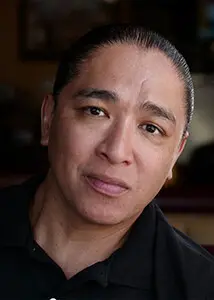
C.T. Mexica
Phoenix, Arizona
C.T. Mexica worked on 18 With a Bullet: Or, With Love & Respect, a nonfiction memoir of intergenerational incarceration, anchored in the author’s incarceration from the age of 13 to 21 for acts of mutual violence committed against other bonded males, and transformation to a postdoctoral researcher and emerging writer. During the Fellowship, Mexica acquired an agent, Ian Bonaparte (Janklow & Nesbit), who will be bringing his memoir to auction in the near future.
Through the Fellowship, Mexica worked with memoirist Piper Kerman.
Post-Fellowship, Mexica is working with Mexican authors Elmer Mendoza and Eduardo Antonio Parra to facilitate workshops for incarcerated youth across Mexico and Central America, in addition to planning upcoming transnational free speech events stemming from the assassination of journalist Javier Valdez, and convening presenters and other scholarly advisors to facilitate discussions connected to Arizona State University Art Museum’s Undoing Time: Art + Histories of Incarceration exhibition (September 2021 through February 2022).
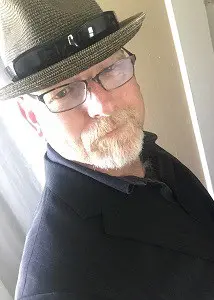
J.D. Mathes
Tehachapi, California
J.D. Mathes worked on In Strange Company, a novel that reveals a free nation’s dark impulse toward punishing the mentally ill and the addicted, told through the story of a young man struggling with the trauma of prison to find peace, grace, and humanity through learning music. Mathes is currently shopping the book for publication.
Through the Fellowship, Mathes worked with writer and editor Kerri Arsenault.
During the Fellowship timeline, Mathes published an essay on addition and mass incarceration in CURA magazine; Developed various commissioned theater pieces; And optioned a film, In the Desert of Dark and Light, about border issues and migration.
Inspired by his experience in the Fellowship, Mathes wrote and shot a 13-minute video documentary about writing for social justice for the Jack Kent Cooke Foundation, presented on utilizing personal experience to create compelling stories for justice for the Writers of Kern and is teaching “Writing For Social Justice” at the Levan Institute at Bakersfield College.

Jonah Mixon-Webster
Flint, Michigan
Jonah Mixon-Webster created Protocol, an immersive two-fold documentary poetics project. The full length hybrid manuscript and digital archive aims to unpack—through dashcam footage, guerrilla audio recordings, arrest documents, and lyrical narration—the procedural relations between police officers and civilians in 21st century America. The first installment of the series was published on The Rumpus.
Through the Fellowship, Mixon-Webster worked with PEN America’s director of U.S. Free Expression Programs, Nora Benavidez.
Mixon-Webster’s poetic essay, “The Hauntologies of Slavery,” published in The Yale Review, follows the author on a journey in tracing his lineage on both sides of the slavery narrative through various landscapes, concluding with a visit to the Equal Justice Initiative’s museum and memorial as part of the fellowship’s roster of activities in Winter 2020.
Facilitated by a connection made during the Fellowship’s programming, Mixon-Webster’s debut poetry book Stereo(TYPE) will be published on Penguin Random House in July 2021.
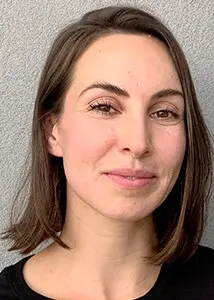
Justine van der Leun
Brooklyn, New York
Justine van der Leun combined narrative journalism, primary data collection and analysis, and investigative techniques to report on the structural, historic, cultural, and legal forces behind the criminalization of women’s defense and survival from abuse. After sending 5,098 surveys to incarcerated women across 22 states to understand their pathways to prison, Justine published “No Choice But To Do It: Why Women Go To Prison” in a joint release with The New Republic and The Appeal.
Through the Fellowship, van der Leun worked with investigative journalist Jordan Smith.
A leading voice on COVID-19’s impact in U.S. prisons, van der Leun published a variety of pieces including “Confinement and Contagion” in The New York Review of Books, “I hope our daughters will not be punished” in Dissent, “The Evidence Against Her” in GEN magazine, and “Death of a Survivor” in The New Republic.
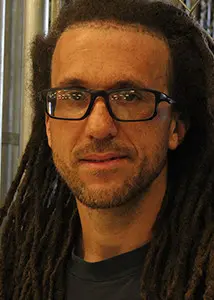
Sterling Cunio
Salem, Oregon
Sterling Cunio wrote Austin’s Echo, a cross-time dramatic dialogue between Austin Reed—who in the 1830s was the first African American to write a memoir about his incarceration—and a 21st-century prisoner. The similarities of prison dynamics, reform debates and social issues are compared through poetic narration, theatrical elements and music to demonstrate how prison is virtually the same after 185 years. Fighting lockdowns, wildfires, and COVID-19 threats at Oregon State Penitentiary, Cunio staged a works-in-progress tele-performance of Austin’s Echo in 2020, and continues to develop it for stage.
Through the Fellowship, Cunio worked with hip hop theater artist Baba Israel.
During the Fellowship period, Sterling published a reflective personal essay, “Tragedy’s Silver Year,” on crime and redemption in Fordham University’s CURA literary magazine and op-ed, “To those behind bars or patrolling them, COVID-19 represents a shared threat,” in The Oregonian, and was awarded a competitive 2019 Oregon Literary Arts Fellowship.
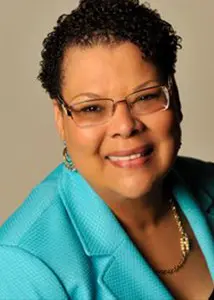
Vivian D. Nixon
New York, New York
Vivian D. Nixon furthered her work on a memoir chronicling her passage from a stable suburban home through phases of mental illness, addiction, incarceration and re-invention. The book exposes the complex individual and structural drivers of mass criminalization through the lens of race and gender.
Through the Fellowship, Nixon worked with editor Ruth Connor.
During the Fellowship time period, Nixon edited and published What We Know: Solutions from our Experiences in the Justice System (New Press, 2020), which also features three Writing For Justice Fellows: C.T. Mexica, Arthur Longworth, and Thomas Bartlett Whitaker.
Additionally, Nixon published two poems in Michigan Quarterly Review’s Fall 2020 issue on persecution, and the article “COVID-19 highlights the need to protect health for all by ending mass incarceration” in the Sacramento Bee.
In summer 2021, Nixon will transition from her longtime role as executive director of College & Community Fellowship to pursue new ventures as a writer and creative thinker on issues of racial, gender, and economic justice.
2019-2020 Writing for Justice Finalists
Ashia Ajani
Ashley Dixon
Eli Day
Michael Fischer
Kima Jones
John Lennon
Leo Oladimu
Natyna Osborne
Stephanie Rolin
Purvi Shah
Passion Star
Tria Blu Wakpa
2019-2020 Writing for Justice Semifinalists
Chandra Bozelko
Brandon Brown
Joan Dempsey
Ashleigh Dye
Abdiel Echevarria-Caban
Gregory Goodman
Advisory Committee
Asha Bandele
Dr. Baz Dreisinger
Dr. Eve L. Ewing
Randall Horton
Piper Kerman
Zachary Lazar
Nigel Poor
Julio Ricardo Varela
Earlonne Woods
